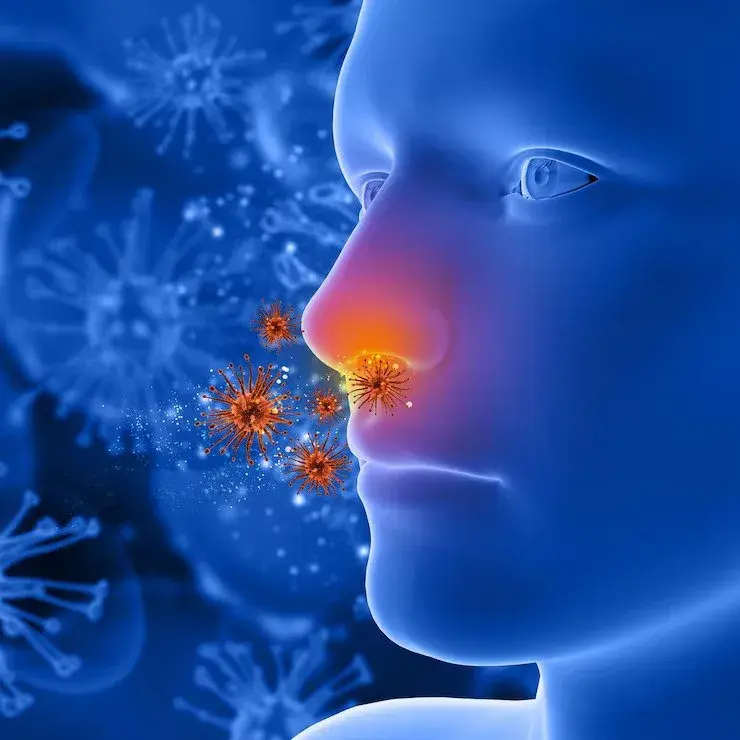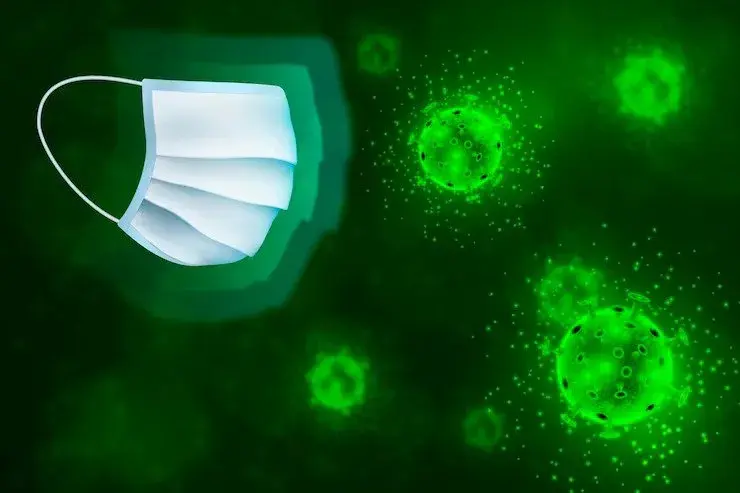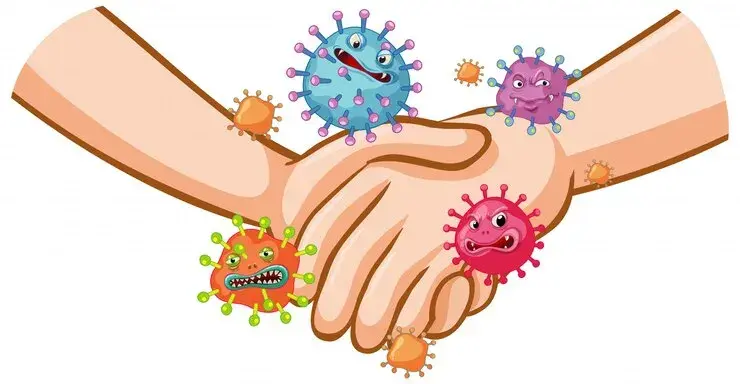A few diseases have become common among people. However, experts are still finding solutions for them. The one disease I am going to hit is a sinus infection contagious, which means a sinus infection. A sinus infection has another huge name, called Rhinosinusitis. You must think that if a person has a sinus infection, it might affect me too. Certainly! If it is a viral sinus infection.
According to the American Academy of Otolaryngology-Head & Neck Surgery, sinusitis affects 10 to 30% of persons in the United States and Europe each year. The numbers are quite big if we bring this data to the world level. Some studies reveal that sinus infections often do not spread to other people. However, certain sinus infections are contagious and can be passed from person to person. Also, Ineffective treatment and antibiotic prophylaxis are unnecessary in viral sinusitis.
Are sinus infections contagious?

Sinus infection is a potentially serious complication of the common cold, which you might pass on to someone else if they come in contact with your infection. However, if bacteria, rather than a virus, is to blame for your sinus infection, you need not worry about spreading it to anybody else. If you are affected by a viral sinus infection, you are most likely to spread the infection. This spreading is because the virus tends to travel in the air. Research suggests that you are contagious to others if your sinus is due to a cold.
Which class is a sinus infection contagious?
1. Viruses -
A virus typically causes sinus infections. You can share the virus that caused it but not the infection itself if that is what occurred to you. A different person could become ill, but they could not have a sinus infection. These viruses typically induce a common cold, which could or could not progress to sinus infections.
2. Bacteria -
Bacteria can develop and become infected whenever the sinuses are congested and mucus-filled. You are more susceptible to bacterial sinusitis if your sinus infection persists for more than 10 to 14 days. If bacteria are the source of your infection, you cannot spread it.
Also, Read: Sinus Headache Relief Pressure Points.
How Long Does It Last?
You might have been contagious for days before developing a sinus infection if a virus were to blame. Most viruses only spread for a few days, but occasionally they can last a week or longer.
How Is a Sinus infection Spread?
1. Virus in Air -

Similar to how a cold or the flu spreads, sinusitis also does. When someone coughs or sneezes, virus-carrying particles and droplets may enter the air and spread to other people.
2. A touch of a virus -

Physical contact can also spread these illnesses. If a sick person contacts something like a doorknob before a healthy person, that thing could become a carrier for a virus.
3. Virus in hands -

Because of this, it's crucial to avoid getting sick by taking preventative measures like cleaning your hands with warm soap and water, protecting your mouth whenever you sneeze or cough, and limiting direct contact with contagious individuals.
Also, Read Sinus Headache Symptoms: All You Need to Know.
What are the possible Treatments?
Most sinus infections go away on their own without the need for prescription medicine. With time, the mass will react well to over-the-counter medications. Nearly 50% of the cases get well in a week without antibiotics, and 70% get better in two.
Home remedies can be used in several ways to facilitate this process and relieve nasal pressure and pain at the same time: Apply a warm compress by placing it over the forehead and nose.
- Use nasal decongestant sprays to assist drain and drying out the accumulated mucus. Use fluticasone (Flonase) morning and night for as often as you are experiencing symptoms, or oxymetazoline (Afrin) twice daily for 3 days only (exclude if you suffer from high blood pressure).
- Saline nostril sprays and rinses: These might aid in thinning and clearing mucous collected in the nose, averting bacterial infection and easing symptoms. These may be employed numerous times each day.
- Inhaling steam is possible in a warm bath or with a bowl.
- Avoid breathing in filthy air, smoking, or other airborne contaminants because they can aggravate and inflame the nasal and pulmonary passages.
- Using a humidifier: Increasing the humidity in the air can help.
- Taking a lot of water and sleeping
- Taking this over nasal decongestant: OTC drugs can help temporarily relieve symptoms, but they shouldn't be taken for more than three days in a row.
- Taking acetaminophen or ibuprofen alone or in combination with a decongestant can help relieve nasal pain and headaches.
- When using Mucinex or Robitussin, look for the powerful antioxidant guaifenesin. These medications can lessen coughing and thin mucus.
Also Read: A Guide to Choose the Best Humidifier for Asthma
Tips to Prevent spread of Sinus Infection -
Following steps of hand hygiene or an alcohol-based hand rub is also a good way to prevent infection.
- Hand hygiene is a crucial step in avoiding sinus infections.
- Keep the nose moist with saline or nasal spray.
- Cut every source of allergies.
- Prohibit yourself from going outside in the polluted area.
- wear a mask or avoid physical touch with other people
- Antibiotics and steroids can have a negative impact on your body.
- Swim in a salted water pool rather than chlorinated water.
- A healthy lifestyle should be followed in every possible way. Resist drinking cold beverages and drinks that can trigger a cold or flu.
Also, Read 4 Acupressure Points For Gas & Bloating That You Didn't Know About.
Outlook -
A clear idea is needed to avoid the contagious complication of sinus infection. A set of tips should be followed to reduce the risk of infection for any disease condition. Despite following the rules, you might have a chance to expose yourself to unwanted conditions. Therefore, you should avoid going to crowded areas, especially with children.
Wear a mask as much as possible, especially in high-risk areas. Some people also follow and control their sinuses well by adopting a good lifestyle, for instance, yoga, exercise, home remedies, and a line of treatment. For a better understanding, please read this blog carefully about the question Is Sinus Infection Contagious?
Frequently Asked Questions
What are sinuses?
The air-filled spaces in the skull are sinuses.
Do sinuses contain any bacteria?
Healthy sinuses contain no bacteria and no gems.Â
What is the use of sinuses?
Sinuses allow drainage to the nose.Â

Reviewed by







